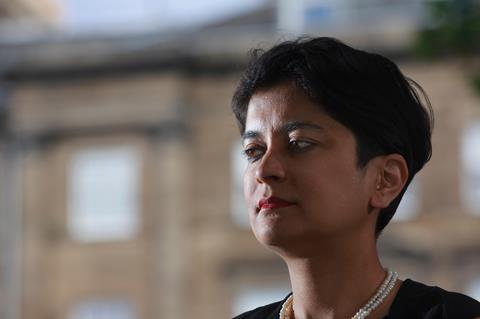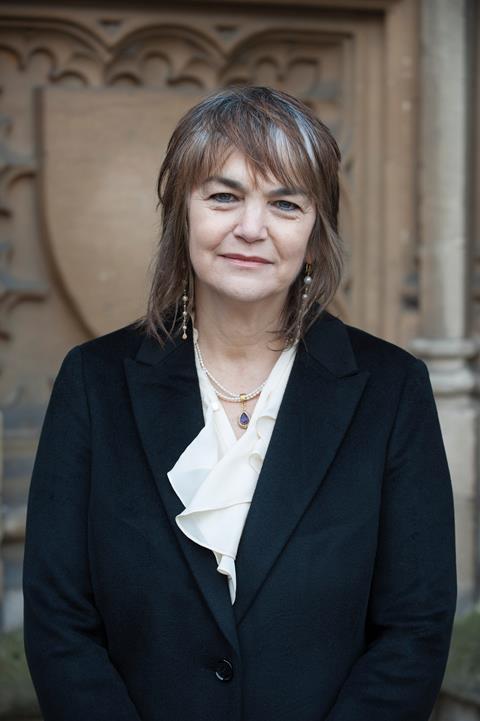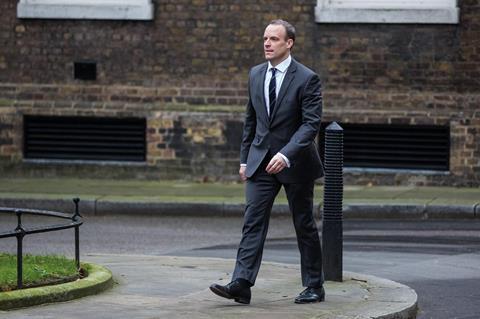Stung by the accusation that rape has been ‘decriminalised’, the CPS is striving to expedite cases in the face of acute resource constraints. Catherine Baksi reports
The low down
Faced with a record fall in rape prosecutions and convictions, the Crown Prosecution Service, in concert with the police, is making efforts to speed up cases and reduce the gap between the number of complaints and prosecutions. The evidence suggests that measures are starting to have a positive impact. Research shows that in those cases that get to trial, conviction rates are higher than for other serious offences. But high-profile failings by the CPS and grave offences committed by police officers, coupled with the government’s failure properly to tackle the backlog of 60,000 Crown court cases, risk shattering public confidence. That would prevent victims coming forward. And although the CPS denies it, concern that the bar for charging suspects remains too high persists.
Rape prosecutions are a politically and emotionally charged subject. The Gazette faced a furious response from the Crown Prosecution Service following a November 2019 story on rape prosecutions.
The Gazette report revealed a previously undisclosed target for rape convictions – 60% of prosecutions – which created a ‘perverse incentive’ only to prosecute the very strongest cases. That 60% ‘level of ambition’ was in place from 2016-2018, though the CPS inspectorate was still using the target as a reference point in May 2019.
The CPS inspectorate produced a review of 450 of its charging decisions at astonishing speed – just 34 days, against the 766 days from alleged offence to charge in adult rape cases – which the CPS claimed showed ‘no evidence that our prosecutors are risk averse. The report also finds no evidence that prosecutors are charging fewer cases in order to increase conviction rates’. Its chief inspector at the time, Kevin McGinty, while acknowledging ‘the CPS needs to improve the way it works with the police’, nevertheless blamed the police, whose referrals had fallen.
However, the Cabinet Office’s 2019 end-to-end review of the criminal justice response to rape, which was leaked to the Gazette, found CPS decisions to prosecute had declined at a faster rate than the decline in referrals.
Dame Vera Baird KC, then the Victims’ Commissioner, said the undeclared target was important and would never have come to light without the Gazette’s report. Former Liberty director Shami Chakrabarti told Newsnight the revelation left her ‘shaking with anger’. The CPS never specifically denied it had conceded to the Gazette that the targets created a ‘perverse incentive’.
Dogged by criticism
In fact, the CPS continued to be dogged by criticism over its handling of rape cases, with record low numbers being charged or prosecuted. And despite its claims that its practices were vindicated by the inspectorate’s report, the service has been making concerted efforts to improve.
So what continues to frustrate those efforts? Speaking to the Gazette, two solicitors employed by the CPS are concerned that they are being overshadowed by media reporting of individual cases where things go wrong.
‘We are doing all this hard work, seeing improved relationships with the police, good collaborative working and seeing the fruits of our labour,’ says deputy chief crown prosecutor Adele Kelly. But, she adds, ‘it seems, that if something goes wrong, people jump on it’.
Kelly, who oversees the senior district crown prosecutor who runs the South East specialist Rape and Serious Sexual Offences (RASSO) team, adds: ‘I’m concerned about public confidence, to the point where it puts victims off reporting.’
And Kelly is also concerned that this will mean that predators feel able to ‘take advantage and prey on vulnerable people thinking that they can get away with it’. She stresses: ‘My team’s dedicated to this line of work – they feel so passionately about it and we feel strongly about getting predators into the court system. We are going to prosecute with the police hand in hand to bring people to justice, so women can feel safe.’ She adds: ‘We need to get the message out there that we care about victims and want to do the best job possible.’

Record reports
In the year ending June 2021, the number of recorded rape complaints reached a record high of 61,158, according to the Office for National Statistics. Many more alleged offences go unreported.
But Home Office figures revealed in 2021 showed that only 1.6% of reported rapes result in someone being charged. That represents a precipitous decline in prosecutions – down by 70% since 2016/17. This led Baird to suggest that rape had effectively been ‘decriminalised’. It also sparked an unsuccessful judicial review by the End Violence Against Women coalition into CPS charging.
Since the CPS declared the inspectorate’s December 2019 findings on its rape prosecution decisions as a vindication of its practices, the agency has faced criticism in numerous reports, including the government’s own rape review, published in June 2021.
In the foreword to the review, home secretary Priti Patel, justice secretary Robert Buckland and attorney general Michael Ellis said they were ‘deeply ashamed’ by declining numbers of alleged offenders charged or prosecuted and admitted that they were ‘letting down’ thousands of rape victims.
Serious disclosure failings were highlighted by the case of student Liam Allan in 2017. Allan was charged with rape, but the case collapsed three days into his trial when the police finally handed over the complainant’s phone records to the defence, which included evidence of his innocence.
The case prompted the police to introduce digital consent forms, telling rape complainants that if access to their mobile phone data was denied ‘it may not be possible for the investigation or prosecution to continue’.
Dubbed by critics as ‘digital strip searches’, the forms resulted in cases being dropped where complainants refused to hand over their phone. They were scrapped following criticism by the CPS inspectorate and a threatened judicial review by two women, supported by the Centre for Women’s Justice.
Police offences
More recently, reports of crimes of sexual violence by police officers have further reduced confidence in the police.
In February, Metropolitan police officer and serial rapist David Carrick was given 36 life sentences after admitting dozens of counts of rape and sexual assault over two decades.
The case prompted Met commissioner Sir Mark Rowley to reveal that the force is currently investigating 1,000 sexual and domestic abuse claims involving about 800 of its officers. Carrick’s case followed that of Wayne Couzens, another Met officer, jailed for life for the abduction, rape and murder of Sarah Everard in March 2021.
High-profile failures to prosecute by the CPS have included the cases of Emily Hunt, who is now a government adviser on rape, and Jade McCrossen-Nethercott. McCrossen-Nethercott, who gave up her right to anonymity, is suing the service after it admitted that it should not have dropped her case in the face of defence claims that she suffered an episode of sexsomnia – a rare condition in which people can perform sexual acts in their sleep.
‘Juries can only decide cases put to them’
The latest government statistics show that from July to September 2022, despite a fall in prosecutions, 61.9% ended with convictions – down from 69.1% three months previously.
Research by Professor Cheryl Thomas KC (pictured), director of the jury project at University College London, shows that in the 15 years from 2007-2021 jury conviction rates for rape went up from 58% to 75%. Some suggest this indicates that assumptions about juries acquitting due to a belief in ‘rape myths’ are not persuasive.

The study, commissioned by the senior judiciary following a petition to parliament arguing that jurors were biased in rape cases, analysed almost six million charges against defendants. It encompasses every verdict reached by a jury on rape charges in the period (68,863 jury verdicts by deliberation).
It found that the precipitous fall in rape charging from 2016 to 2020 was part of a systemic fall in charging for all offences in that period.
The study also found that rape had the highest not guilty plea rate of any offence (85%); and the highest average jury conviction rate (58%) compared to other serious crimes such as threatening to kill (conviction rate 33%), attempted murder (47%), GBH (48%) and manslaughter (also 48%).
Thomas said: ‘It’s clear that there are serious problems with how rape complaints are handled by police and how long cases take to reach court. But juries are not responsible for this.’
She added: ‘They can only decide the cases put to them, and this research shows that if rape complainants can put their evidence to a jury, they have a good likelihood of securing a conviction.’
But Harriet Wistrich, director of the Centre for Women’s Justice, is concerned that the police and the CPS are only putting forward the very strongest cases where there is corroborating evidence or other factors strongly in favour of a conviction.
A mountain to climb
Delays to trials caused by funding cuts, court closures, and the shortage of barristers and judges – made worse by the Covid-19 pandemic – add to the mountain that the CPS has to climb.
The backlog of around 60,000 Crown court cases means that some victims, forced to wait up to years for trial, are walking away.
But since publishing its five-year blueprint, named RASSO 2025, the CPS has made efforts to improve – most notably through a Joint National Action Plan (2021,‘refreshed’ in 2022) to help investigators and prosecutors build strong cases and support complainants.
There is also Operation Soteria Bluestone, which is testing different ways of working in a bid to improve partnerships with the police. Starting in five police forces, Soteria Bluestone is now operating in a further 14. Crucially, explains Vicky Gleave, a senior district crown prosecutor running the South West specialist RASSO team, it seeks to focus on the conduct of suspects rather than complainants.
Gleave’s area is trialling a new system of victim communication, which includes the CPS writing to complainants when it receives a request for charging advice from the police.
Whether or not the decision is to charge an offender, she explains, the complainant is written to, given the contact details for a victim liaison officer and offered a meeting to discuss the outcome or the next steps, including the use of any special measures to help them give their evidence at trial.
An early advice pilot in the South East area, in which the police have 42 days to pass complaints on to the CPS, Kelly says, resulted in a 465% increase in referrals to the CPS from November 2020 to October 2021 and a 52% rise in the charge rate.
In that time, she says, the number of rape referrals submitted to the CPS went up from 99 to 559.
Nationally, since the introduction of the Joint National Action Plan in January 2021, adult rape referrals from police have increased 69% and the number of adult rape cases charged has increased by 86%, according to the CPS.
From July to September 2022, the CPS says the number of suspects charged with rape increased by 13.7% – the fifth consecutive quarter in which the figure has risen.
A year and a half on from the government’s rape review, in a progress update in December 2022, justice secretary Dominic Raab wrote that there is ‘cause for cautious optimism’ and said that ‘steady, incremental progress’ was being made.
Working with Rape Crisis UK, the government launched a 24/7 Rape and Sexual Abuse Support Line and increased funding for victim support.
But the impact of the CPS’s commitments, says Ellie Cumbo, head of public law at the Law Society, ‘has been severely hampered without sufficient investment in the system it proposed to improve’.
'The delays in the courts mean that both victims and defendants are having to wait far too long to get the justice they have a right to expect'
Ellie Cumbo, Law Society
Cumbo says: ‘The most recent data shows that, at the end of September 2022, it took on average 766 days from the offence being committed to a charge being made by the police in adult rape cases.’ From charge to a case being completed in the Crown court, the average waiting time is 369 days.
‘The delays in the courts mean that both victims and defendants are having to wait far too long to get the justice they have a right to expect,’ she adds, and for too many ‘navigating the justice system has become a nightmare journey’.
Part of the delay is down to the shortage of specialist barristers to prosecute and defend in rape cases. According to the Criminal Bar Association, poor legal aid rates have prompted 22% of junior barristers and 46% of KCs to ditch criminal practice since 2016.
Sue Hemming, the senior official at the CPS responsible for cases of violence against women, told a barristers’ conference last year that the number of advocates on the CPS’s specialist rape panel had fallen by about a quarter in the past three years.

A barrister with over 25 years’ experience in prosecuting and defending, who did not want to be named, says that the recent 15% increases in fees for defence and prosecution barristers, ‘may prevent others leaving, but won’t bring back those who have left’.
Dealing with sexual offences is complex and emotionally exhausting, the law changes often and some elements of the work are unremunerated, says the barrister.
‘Several people a week send me an email saying they can’t do it anymore,’ adds the barrister, who also claims that the CPS is paying KCs to prosecute straightforward rape cases, due to the shortage of RASSO panel barristers.
The CPS spokeswoman was unable to comment on the suggestion that KCs have been used in straightforward cases due to a shortage of junior barristers on its RASSO panel. But she confirmed that from August 2018 to now, the number of independent barristers on its specialist RASSO panel has fallen from 903 to 692, explaining that they are level 3 and 4 advocates on its general crime panel.
Criminal Bar Association chair Kirsty Brimelow KC says that the lack of prosecutors ‘seems to disproportionately impact trials of serious violence and sexual offences’.
Giving evidence to the home affairs select committee in February, she pointed to government figures published in January indicating that over the 15 months to 30 September 2022, 364 Crown court trials were aborted on the day they were listed to begin due to no prosecutor being available – of which nearly half (173) involved violence and sexual offence cases.
This, says Brimelow, represents a 14-fold increase on just 26 trials of all offences similarly aborted due to prosecutor unavailability during the same period three years previously.
'After 13 years, the Conservative legacy is criminals being let off while victims are let down'
Steve Reed, shadow justice secreatary
CBA analysis of the Ministry of Justice data shows that for the 229 rape cases completed between April and June last year, complainants waited an average of nearly four years. For the 138 defendants who were on bail for rape, the average time from offence to completion was 2,091 days – nearly six years – including 577 days on average from charge to completion.
Kelly and Gleave suggest that in their areas very few RASSO cases are adjourned on the day of trial, adding that while they do sometimes find it hard to find barristers, it is generally defence not prosecution counsel.
A government initiative to allow complainants who choose to pre-record their cross-examination to do so has been hampered by the shortage of barristers prepared to participate.
A new bolt-on £670 fee is due to be introduced, but barristers argue that the fee is inadequate for the work required. Brimelow warns: ‘Recording a witness and pressing “play” can lessen the impact on the jury.’ But Gleave insists that is not borne out in her area.
More widely, the CBA is concerned that decisions are being made by inexperienced officers and prosecutors, and argues that earlier input from specialist barristers may help.
Others question the government’s commitment to complainants, noting that almost six months after Baird resigned as Victims’ Commissioner, a successor has yet to be appointed.
In June 2022, Raab announced plans for enhanced specialist sexual violence support at courts in Leeds, Newcastle and Snaresbrook in London. But in January, three months after the pilots were due to begin, justice minister Edward Argar acknowledged that the ministry is ‘still in the process of implementing’ the measures.
To speed up justice for rape victims, the Labour party has pledged to open specialist rape courts, listing rape cases as a priority and fast-tracking them, and increasing the number of prosecutors and sexual violence advisors.
Shadow justice secretary Steve Reed tells the Gazette: ‘After 13 years, the Conservative legacy is criminals being let off while victims are let down,’ adding that the government has ‘effectively decriminalised rape’.
Branding Labour as ‘the party of law and order’, Reed said his party ‘will take decisive action to fast-track rape cases in every court, provide dedicated support to vulnerable survivors and increase minimum jail terms for rapists’.

Catherine Baksi is a freelance journalist
































2 Readers' comments